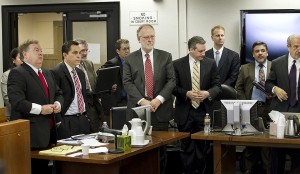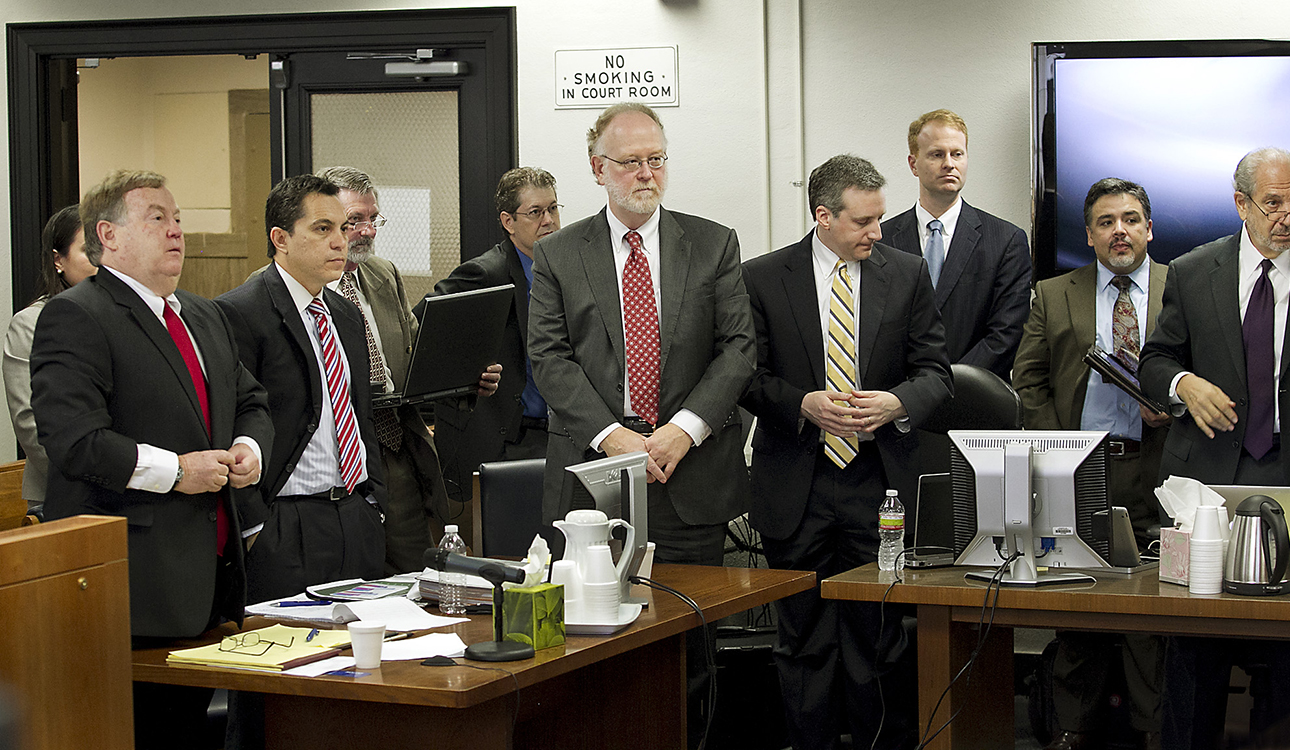 By Will Weissert
By Will Weissert
Associated Press
AUSTIN — Attorneys representing around 600 school districts argued Monday that Texas’ school financing system is so “hopelessly broken” that it violates the state Constitution while keeping students from being prepared for the well-paying jobs of tomorrow.
The state countered that, even though the system is flawed, it’s nowhere near a crisis point.
Six lawsuits have been filed on behalf of about two-thirds of school districts, which educate about 75 percent of the state’s roughly 5 million students. They have been rolled into a single case, which opened before state District Judge John Dietz in Austin. The trial is expected to last into January.
The Texas Constitution guarantees an “efficient system of public free schools,” but the plaintiffs say many schools can’t provide an adequate education because the way they are funded is inefficient and unfair. Districts in rich and poor parts of the state are on the same side in the matter because Texas relies on a “Robin Hood” scheme in which districts with high property values or abundant revenue from oil or natural gas taxes turn over part of what they collect in property taxes to poorer districts.
“The system of school finance, as we see it, is hopelessly broken,” said Rick Gray, who represents more than 400 districts mostly in poorer areas of the state. All the plaintiffs “are a united front in our belief that the system is unconstitutional,” he said in his opening statement, adding that “the stakes are simply too high to ignore anymore.”
The lawsuits were filed after the Legislature cut $4 billion in state funding to schools and another $1.4 billion for grant programs in 2011. The plaintiffs note the money was cut even though Texas’ population has boomed and the number of low-income students has skyrocketed. Students from low-income families generally cost more to educate because many require instruction to learn English or participate in costly remedial programs outside the classroom.
Meanwhile, Texas has imposed increasingly more-difficult standardized tests that high school students must pass to graduate.
The districts claim that funding cuts have forced them to layoff teachers, increase class sizes and cut back on education programs — all steps that ultimately leave their students less prepared for tougher exams.
“The bar has been raised and yet one hand has been tied behind school administrators’ backs,” Gray said.
He said experts will testify in coming days that, if current educational trends continue, the earning power of Texas residents forced to settle for low-wage jobs will decline so much that it will cost the state $11 billion in lost tax revenue by 2050.
The state Attorney General’s office says that because Texas places great emphasis on local control of its school districts, shortcomings are the fault of individual districts.






